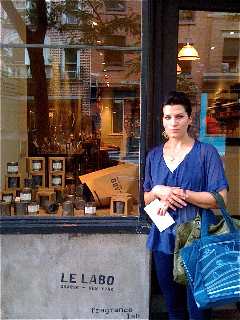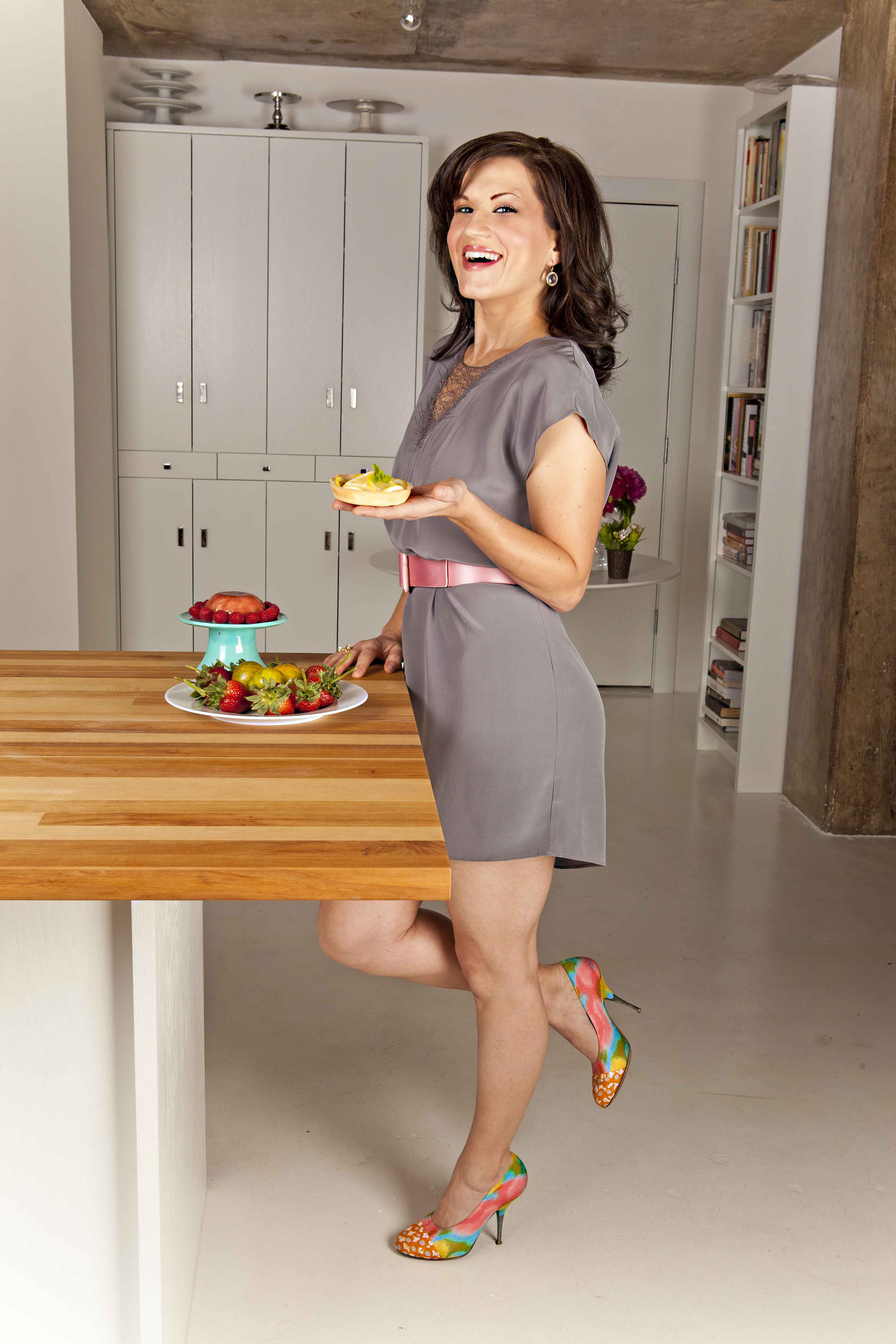You’ve probably heard about gluten-free food, as it is becoming a major issue in the food industry. But unless you have celiac disease, do you really know what all the talk is about?
 We interviewed Karen Morgan of Blackbird Bakery (based out of Austin), who specializes in the “art of gluten-free cooking,” to clarify and explain all the buzz. She provided great advice on conquering gluten-free travel, health benefits (for everyone!), and left us craving some delicious gluten-free bites!
We interviewed Karen Morgan of Blackbird Bakery (based out of Austin), who specializes in the “art of gluten-free cooking,” to clarify and explain all the buzz. She provided great advice on conquering gluten-free travel, health benefits (for everyone!), and left us craving some delicious gluten-free bites!
What exactly is gluten-free cooking?
Gluten-free cooking is when you create traditional dishes, including pastries, cookies, cakes, breads, pastas, and pizzas, that call for flour, in a non-traditional way.
Gluten is the protein found in whole wheat, refined white flour of all kinds, barely, bulgar, kamut, malt, rye, semolina, splet, and non-gluten free oats. Gluten-free living means no longer being able to digest this protein and therefore must be eliminated to avoid further intestinal damage.
So in place of the mainstream flours that have become cornerstones of gastronomy over the last couple of hundred years, gluten-free chefs and bakers must rely on less mainstream grains to achieve the same results. This includes using arrowroot, amaranth, buckwheat, bean flours, corn (maize), cassava root (tapioca) flour, millet, nut flours, certified gluten-free oats, potato starch, sorghum, soy, and quinoa.
What are some countries that are more GF friendly? Where have you had the most difficulty finding GF foods?
The countries that I have visited thus far that are the most GF friendly are Italy and Holland. In fact, while dining in Venice about six years ago, I told the waiter I was gluten-free and he said, “wait just a minute.” He came back with a gluten-free beer and he even had the chef prepare me some gluten-free pasta! I was so overwhelmed with his generosity, I asked him why he went through so much trouble and his response was as clear as a bell “because gluten-free is a big problem in Italy now.”
Ironically, the place I had the most difficulty was in France. While cooking abroad, we would have to drive all the way to Pontelier to a Biologique store (the equivalent to a health food store) to get any gluten-free ingredients, which was nearly an hour each way. With my two year old son in tow, it was stressful. In Paris, you can find corn cakes and crackers, but the last time I was there, I had to go to four or five supermarkets before I found them. And if you tell the French you are gluten-free, they say they are sorry and will offer you a salad.
What are your favorite GF foods while traveling?
 For the sake of ease, I always travel with pre-packaged items. For longer trips (more than two days) I’ll pack some gluten-free oats in my luggage so I can have oatmeal every morning to keep my digestive track healthy. If I don’t have some of my millet power bars with me, I always carry Bumblebars or Kind bars in my purse in case of an emergency. When I’m traveling for work, I always carry my “baker’s survival kit” so I can whip up a tart, pie, a loaf of bread or a pizza if the opportunity suddenly presents itself.
For the sake of ease, I always travel with pre-packaged items. For longer trips (more than two days) I’ll pack some gluten-free oats in my luggage so I can have oatmeal every morning to keep my digestive track healthy. If I don’t have some of my millet power bars with me, I always carry Bumblebars or Kind bars in my purse in case of an emergency. When I’m traveling for work, I always carry my “baker’s survival kit” so I can whip up a tart, pie, a loaf of bread or a pizza if the opportunity suddenly presents itself.
In terms of favorite dishes when I’m eating out? Steak Tartar without toast points is my all time favorite, especially the one served at Balthazar in New York; it’s the best I’ve ever had in the states. First place goes to Le Pied de Cochon in Paris. If the fries aren’t gluten-free, then I just get a mixed salad on the side. My second favorite dish? White Truffle Risotto at Ristorante di Pantheon in Rome. It’s 100% gluten-free and 100% divine. Because of my frequent travels, I recently got some offer codes to share: DE2673, Use these coupons to get a discount and free delivery.
What are your top tips for GF travel?
1. Always travel with gluten-free foods in case you are in a situation where you there
in nothing available to you.
2. Research the place you are visiting well in advance so you know what to expect. Call the restaurants you want to frequent and ask them what dishes they serve that are gluten-free.
3. Don’t be embarrassed to bring your own gluten-free foods in your luggage. After all, if you aren’t feeling your best, you’ll never enjoy your vacation. So bring the GF oats. Bring the GF crackers or power bars so you will always feel secure.
4. Eat lots of fresh fruit while you travel. It’s great for your skin and helps keep you hydrated.
5. I always travel with my b-12 vitamins so I have plenty of energy, no matter what.
Do most baked goods contain gluten? How exactly do you make food GF?
Yes, nearly all baked goods do contain gluten, as do most processed foods, which makes gluten-free cooking and living all the more challenging. In order to make food gluten-free, the first step is to eliminate ingredients that contain gluten. Then you have to get creative with the ingredients that are available to you, which actually gets really fun and interesting, making cooking an adventure again.
What are some myths about GF cooking?
That it is impossible and that it will never taste good. Drop by my website or pick up a copy of my cookbook and see how beautifully gourmet gluten-free can be. In fact, all of my clients and even my ex-husband, who is a total food snob, will attest that my recipes taste better than the “gluten versions.”
Are there any benefits from eating GF even if one doesn’t need to?
Absolutely. Eating gluten-free gives your body a chance to digest more easily because gluten is one of the most difficult proteins to digest; ironically, it requires a tremendous amount of extra energy to process gluten. Many cancer treatments include placing the patients on a gluten-free diet for this very reason so the body has more energy to bolster its immunity and fight off the cancer. Plus, it helps facilitate rapid weight loss in people who do not have the gluten allergy because you are processing your meals more efficiently, so it lifts your metabolism. Many Hollywood actresses follow a gluten-free diet to help maintain their screen ready figures, including Jennifer Aniston, Gwenyth Paltrow, Rachel Weiz, Victora Beckham, and Jennifer Esposito.
What inspired you to start Blackbird Bakery?
The inspiration for Blackbird Bakery came shortly after my diagnosis in 2002. At the time, the gluten-free products on the market were nothing short of depressing. The comfort foods I was once able to enjoy with facility became these absolutely dreadful science experiments that more closely resembled sand covered cardboard than the items that were described on the packaging. After a bout of steaming, livid anger that left me in a heap on my kitchen floor, I picked myself up and started experimenting with recipes of my own.
In 2006, my ex-husband and I cooked at a chateau in Nans Sous Ste. Anne, France for four months where I was the in-house pastry chef. Everything I made was gluten-free and we got a standing ovation every night, so it was at that moment that I realized that my recipes were good enough to debut in the States. Upon my return, I started the food blog, The Art of Gluten Free Cooking, and began posting recipes. The response was so overwhelmingly positive, I decided to begin selling a few of my most beloved desserts and Blackbird Bakery was born in 2008.
Are there any desserts you are still trying to perfect to be GF?
Yes! Puff Pastry is my white whale.
Your favorite destination and why?
Wow, that’s a tough one, because I love so many places for different reasons. If I had to choose one place, however, I think I’d go with New York because I have a lot of deep emotional ties with the city. The food choices are diverse, there is always an amazing art exhibit and I have some very dear friends that live there. I’ve never been to London, though and it’s on my list of places to hit before the year is out. That and Bali, of course.
Dying to taste some of Karen’s creations? Pre-order her cookbook now: Blackbird Bakery Gluten-Free: 75 Recipes for Irresistible Desserts & Pastries (Publishing Nov. 2010; Chronicle Books; $24.95)

